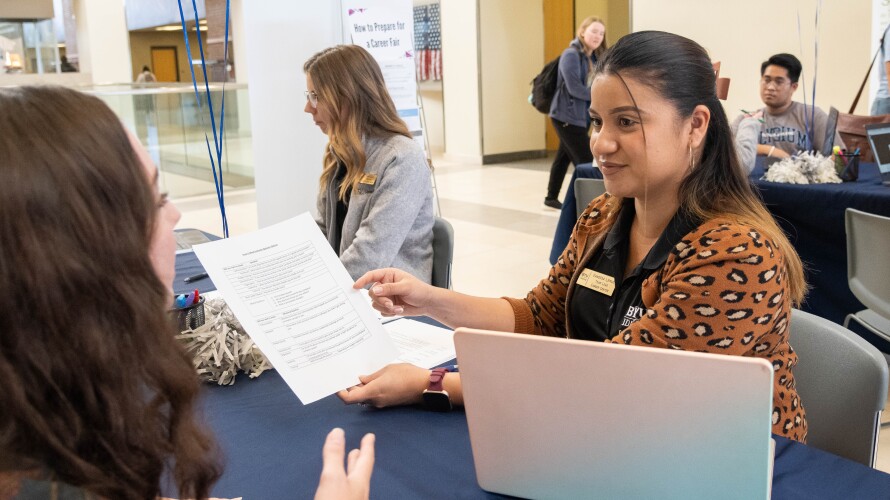Welcome to the Grad School Prep Hub!
Let's pave the way to your academic success!

Before You Apply
Purdue - Researching Your Options
Applying to and Succeeding in Graduate School PowerPoint
Application Resources
Finding Scholarships
Grad school is a large financial commitment, but there are many different funding options available to you! Generative AI can be a powerful tool for you to use when researching graduate school funding options. Watch this video to learn about Finding Scholarships using Copilot. These principles can also be used when searching for scholarships using in ChatGpt.
Here are some common sources of funding for you to research:
- University Scholarships: Merit-based and need-based aid offered by universities.
- Government Agencies: Funding from organizations like NSF, NIH, and DOE.
- Private Foundations: Scholarships from organizations like Ford Foundation and Fulbright.
- Professional Associations: Support from industry-specific groups.
- Employer Sponsorship: Tuition assistance from employers.
- Research Grants: Funding for research projects and assistantships.
- Departmental Funding: Scholarships or stipends from academic departments.
- Diversity Programs: Scholarships for underrepresented groups.
- International Scholarships: Funding for study abroad.
- Online Databases: Resources like Fastweb and Scholarships.com.
Here are some things to keep in mind while preparing to take your exams:
- Determine required tests and set a study timeline.
- Gather materials and consider prep courses.
- Practice and Review: Complete timed practice tests and review mistakes.
- Maintain Confidence and Well-being: Stay positive and prioritize self-care like sleep, diet and exercise.
- Test Day Preparation: Familiarize yourself with test logistics and arrive early.
- Post-Test Evaluation: Reflect on performance and consider retaking if needed.
Resources:
- Mometrix (free through McKay Library)
- Kahn Academy (free)
- TERC
- Magoosh Test Prep
- Quizlet and Anki
- Third Party Prep Books and Practice Tests: Princeton Review, Kaplan, and Mahattan Prep
"How To Write" Resources
- Understand the prompt
- Identify the relevant experiences and goals you’d like to highlight
- Create an outline
- Develop an attention grabber to start e.g. a story or anecdote
- Discuss your academic background
- Highlight relevant professional or personal experiences
- Articulate your goals
- Seek feedback from professionals in your network
- Proofread, revise, and finalize
Example Statement
My interest in science dates back to my years in high school, where I excelled in physics, chemistry, and math. When I was a senior, I took a first-year calculus course at a local college (such an advanced-level class was not available in high school) and earned an A. It seemed only logical that I pursue a career in electrical engineering.
When I began my undergraduate career, I had the opportunity to be exposed to the full range of engineering courses, all of which tended to reinforce and solidify my intense interest in engineering. I've also had the opportunity to study a number of subjects in the humanities and they have been both enjoyable and enlightening, providing me with a new and different perspective on the world in which we live.
In the realm of engineering, I have developed a special interest in the field of laser technology and have even been taking a graduate course in quantum electronics. Among the 25 or so students in the course, I am the sole undergraduate. Another particular interest of mine is electromagnetics, and last summer, when I was a technical assistant at a world-famous local lab, I learned about its many practical applications, especially in relation to microstrip and antenna design. Management at this lab was sufficiently impressed with my work to ask that I return when I graduate. Of course, my plans following completion of my current studies are to move directly into graduate work toward my master's in science. After I earn my master's degree, I intend to start work on my Ph.D. in electrical engineering. Later I would like to work in the area of research and development for private industry. It is in R & D that I believe I can make the greatest contribution, utilizing my theoretical background and creativity as a scientist.
I am highly aware of the superb reputation of your school, and my conversations with several of your alumni have served to deepen my interest in attending. I know that, in addition to your excellent faculty, your computer facilities are among the best in the state. I hope you will give me the privilege of continuing my studies at your fine institution.
(Stelzer pp. 38-39)